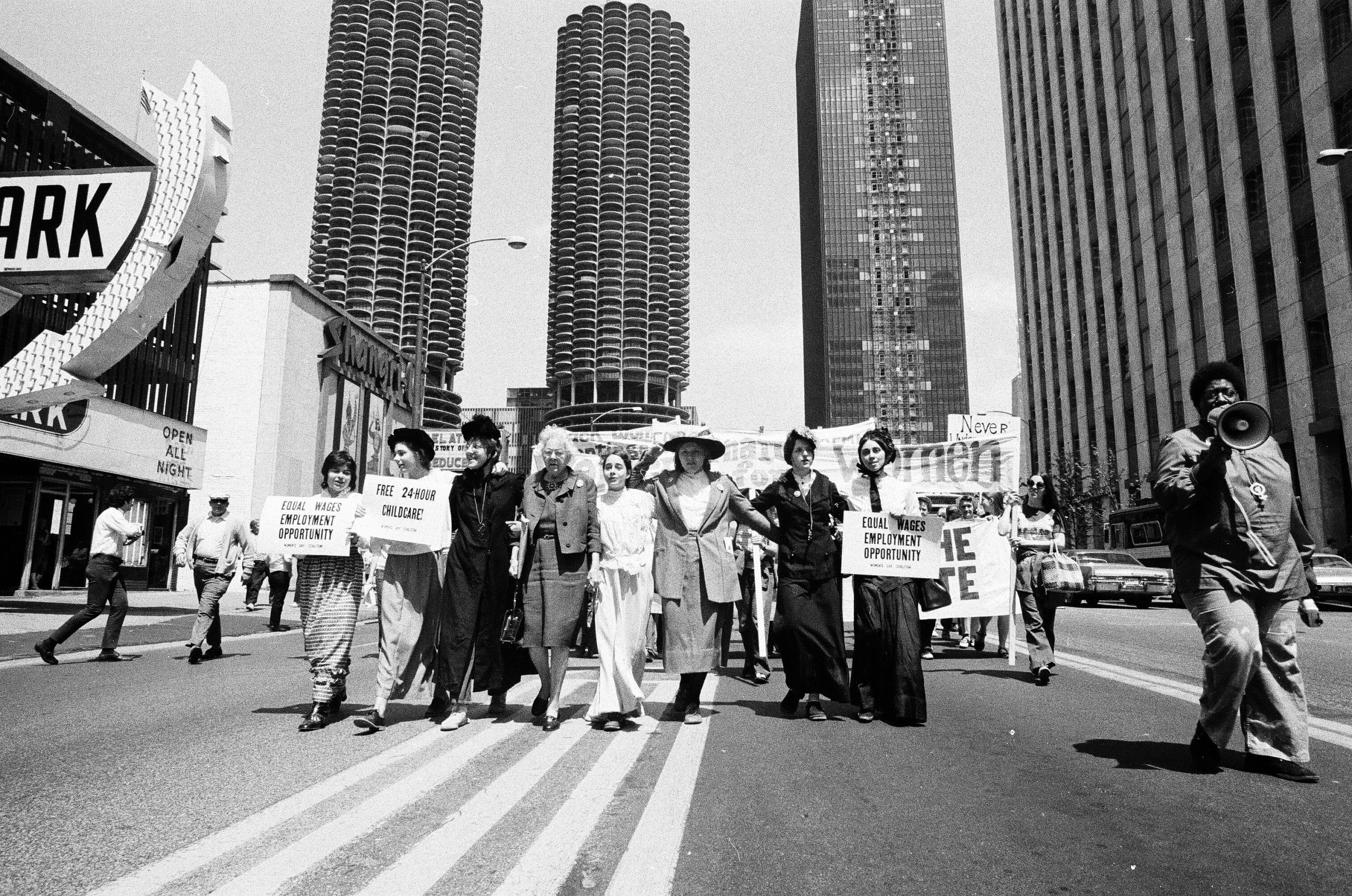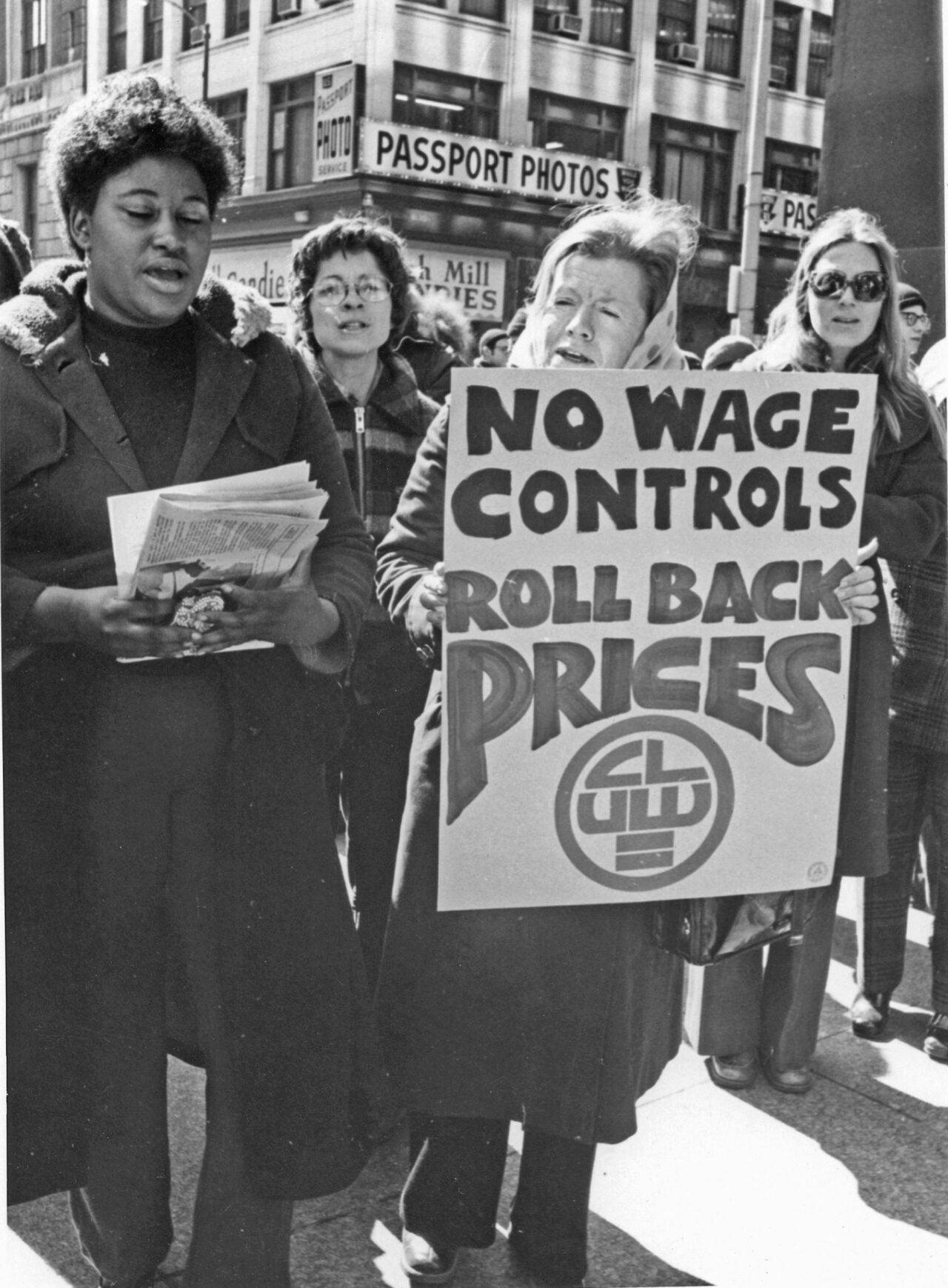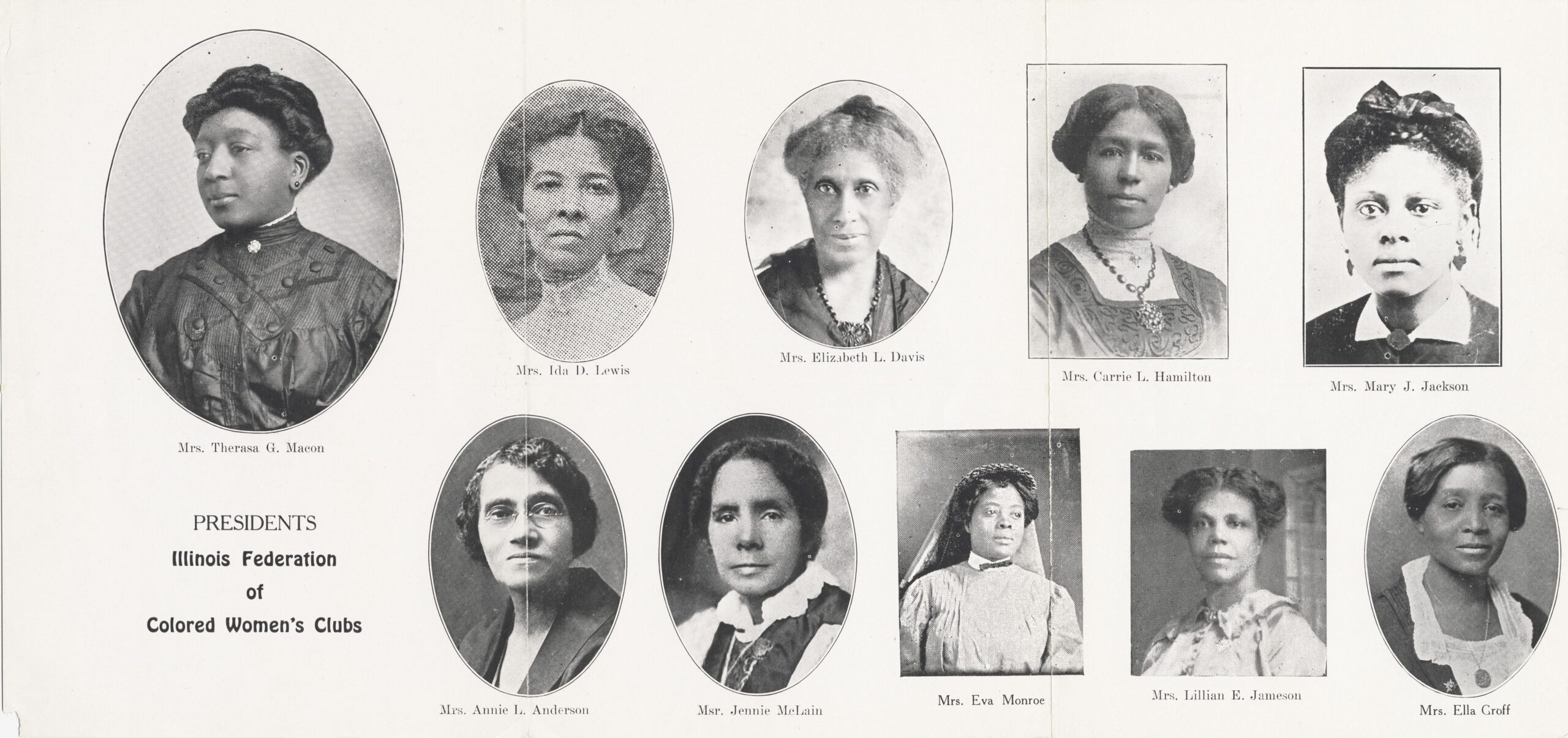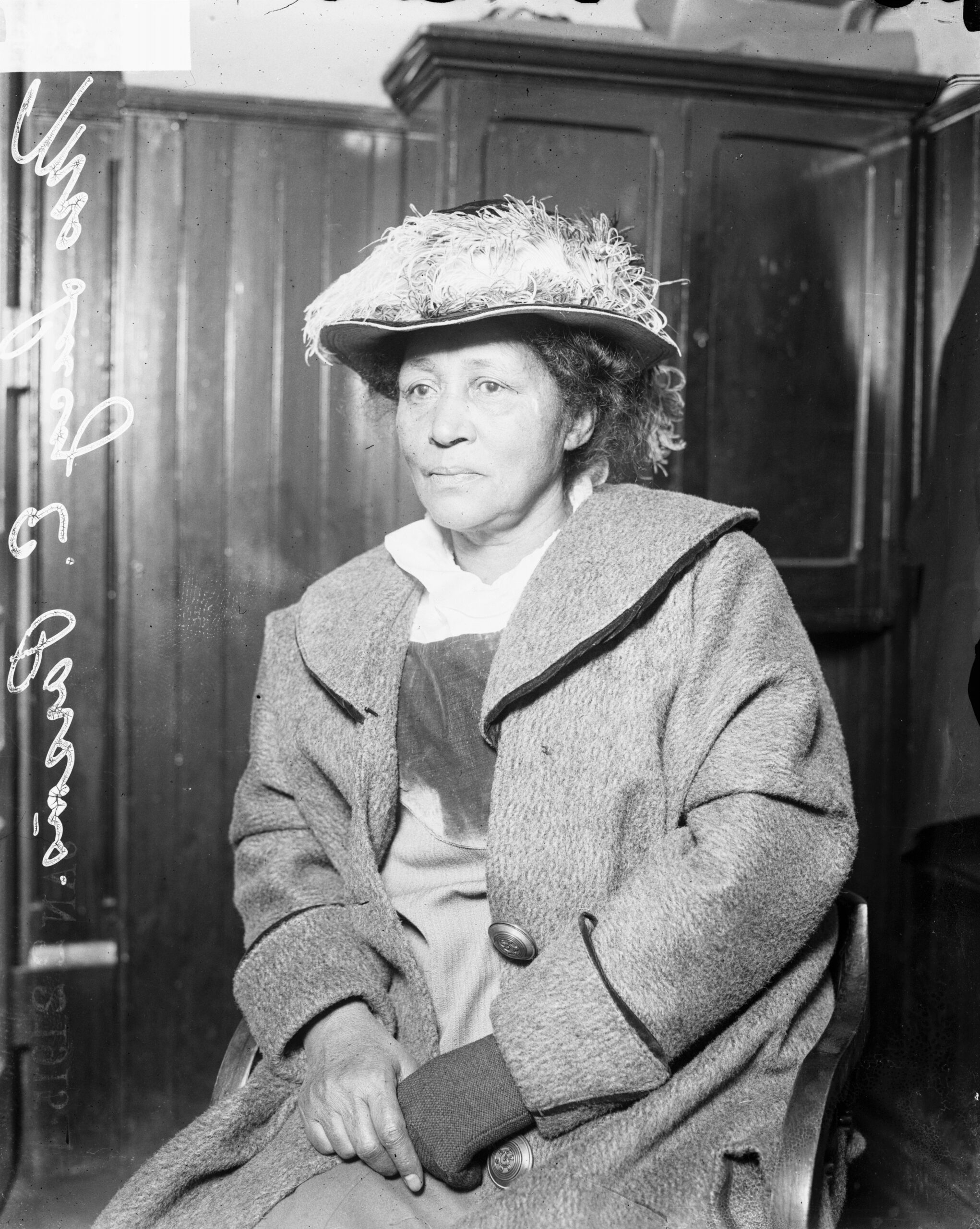
Women march down State Street for the first women’s liberation march since 1916, May 15, 1971. ST-20003470-0019, Chicago Sun-Times collection, CHM © Sun-Times Media, LLC. All rights reserved.
March 8 marks International Women’s Day, which recognizes the social, economic, cultural, and political achievements of women.
The first National Woman’s Day was organized by the Socialist Party of America and observed on February 28, 1909. The following year, at the second International Conference of Working Women in Copenhagen, Denmark, it was proposed that there be a celebration on the same day every year for women to advocate for their demands. International Women’s Day was honored for the first time on March 19, 1911, in Austria, Denmark, Germany, and Switzerland. By 1914, the day was agreed globally to be observed annually on March 8, which it has remained ever since.
The way the day has been recognized varies from country to country. In the early years, it was often a day for marches, where women protested for the right to vote, to hold public office, and for equitable working conditions and pay. In the US, the day has moved away from its origins within the labor movement and is often used to recognize women’s achievements. In Chicago, March 8 has been a day that numerous women’s organizations have hosted rallies, programs, and other celebrations.
Women’s activism has a rich history in the Chicago area. Chicago women have chosen to challenge unfair employment policies, structural racism, and a lack of political representation. Our online experience Democracy Limited: Chicago Women and the Vote offers a glimpse of recent and distant moments when Chicago-area women mobilized for change, part of a long history of activism and protest.
Studs Terkel Radio Archive
In his forty-five years on WFMT radio, Studs Terkel talked to the twentieth century’s most interesting people. His daily radio show featured many of the leading advocates of feminism and women’s rights and covered topics such as lesbianism, women and labor, the concept of witches, feminism and race, and many others.


